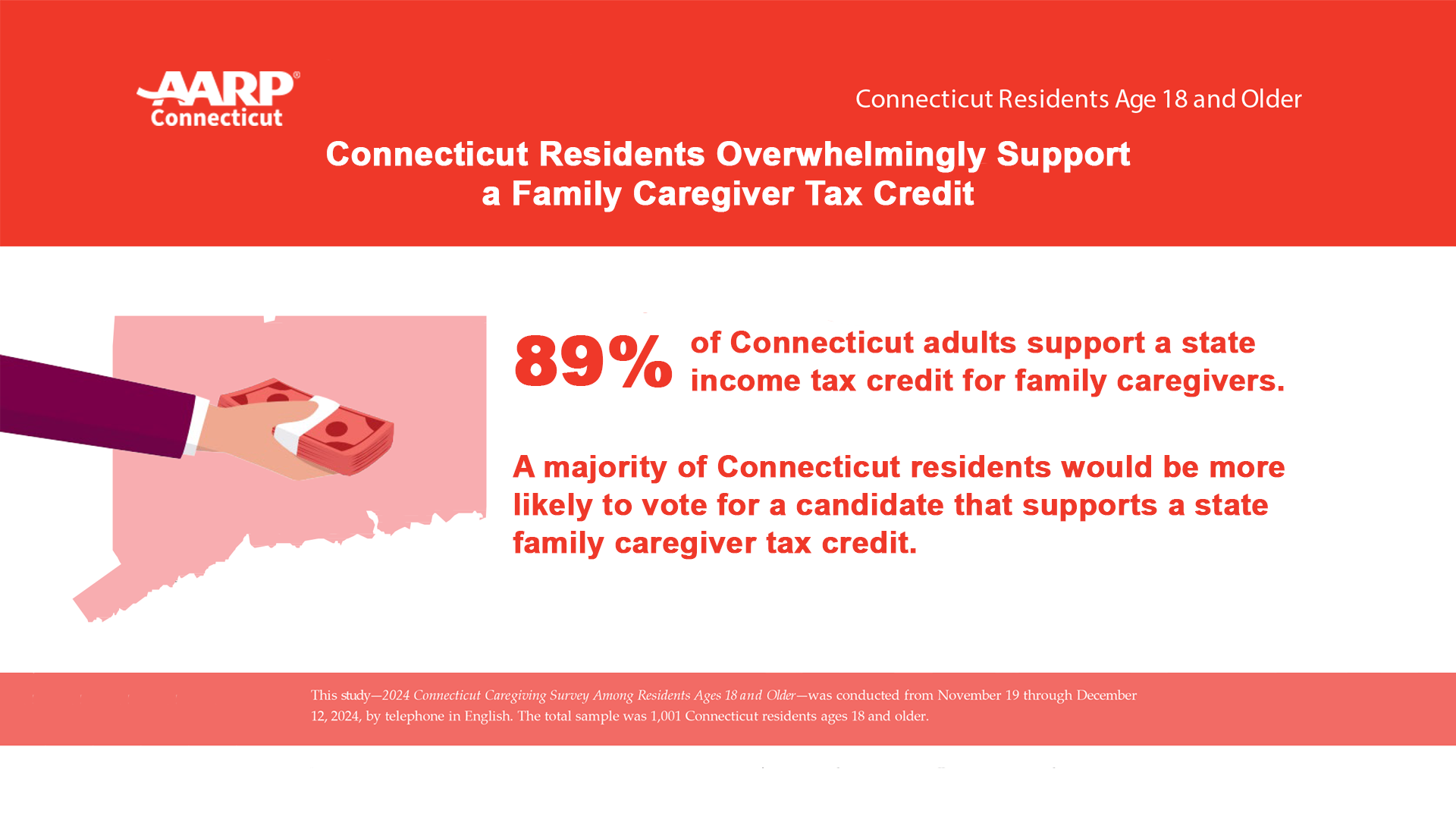AARP Hearing Center

New Data Show 773,000 Adults in Connecticut Provide Care, Spotlighting Urgent Need for Action to Support Family Caregivers
New recently released AARP caregiving data, Caregiving in the U.S. 2025: Caring Across States, finds that 773,000 adults in Connecticut — approximately 27% of the residents — are family caregivers, providing largely unpaid and unsupported care to older parents, spouses, and other loved ones. Additional data for Connecticut is available online at this link.
“When a loved one needs help, family members, friends, and neighbors step up, that’s what we do,” said Nora Duncan, AARP Connecticut State Director. “But too often, caregivers carry this responsibility alone, often putting their finances, health and jobs at risk. As our state population ages, the demand for care will only grow. With the release of this new data and ahead of the 2026 legislative session, AARP Connecticut is urging policymakers at every level to take action to help family caregivers save money, time and get the support they need.”
Family caregivers provide at least $7.2 billion in unpaid care each year in Connecticut, helping family members live independently at home and in their communities — where they want to be. Their caregiving responsibilities range from bathing and meal prep to managing medications, arranging transportation and handling medical tasks, with little or no training.
But the toll on our family caregivers is great— financially, physically, and emotionally.
- 80% of caregivers pay out of their own pockets to help meet their loved ones’ needs, averaging $7,200 each year, or 25% of their income.
- In Connecticut, 42% of family caregivers report financial setbacks — taking on debt, draining savings, or struggling to afford basics like food and medicine.
- 76% of our state’s caregivers are also juggling full- or part-time jobs. Many must reduce work hours or leave the workforce entirely due to caregiving responsibilities, jeopardizing their own long-term financial security.
AARP Connecticut is fighting for commonsense solutions to save caregivers money and time and provide greater support:

- By continuing to advocate for a family caregiver tax credit in Connecticut.
- By defending and enhancing state supported programs such as the Connecticut
Home Care Program for Elders and the Connecticut Statewide Alzheimer’s Respite Care Program. - By helping to pass the Connecticut Paid Family and Medical Leave Act which provides eligible employees with up to 12 weeks of paid leave a year to care for themselves or loved ones.
And at the federal level, AARP is working to save caregivers money through the Credit for Caring Act, a proposed federal tax credit of up to $5,000 for working caregivers, and the Lowering Costs for Caregivers Act, which would expand flexible spending and health savings account uses.
This National Family Caregivers Month, AARP Connecticut encourages everyone to show support for caregivers and to join the growing movement of Americans raising their voices for change. Join AARP’s I Am A Caregiver movement and tell lawmakers it’s time to support those who care.
To access free caregiver tools and local resource guides, visit:
- AARP’s state-by-state Family Caregiver Resource Guides to help family caregivers access key programs, services, and agencies right in their community.
- AARP’s online Caregiving Hub with tools and information available in English and Spanish.
- AARP’s free Employer Caregiving Program series of live, virtual programs employers can use to help employees balance their work and caregiving. Discover the 12 topic options that can help employers learn how making the workplace more caregiver-friendly can help reduce employee turnover and boost the bottom line at www.aarp.org/caregivingworkshop.
- AARP and United Way’s 211 program connects family caregivers to essential local services for themselves and their loved ones via the 211 helpline.
- AARP’s official caregiving Facebook group serves as a place for family caregivers nationwide to connect, share practical tips, offer support, and discuss their shared experiences.































































